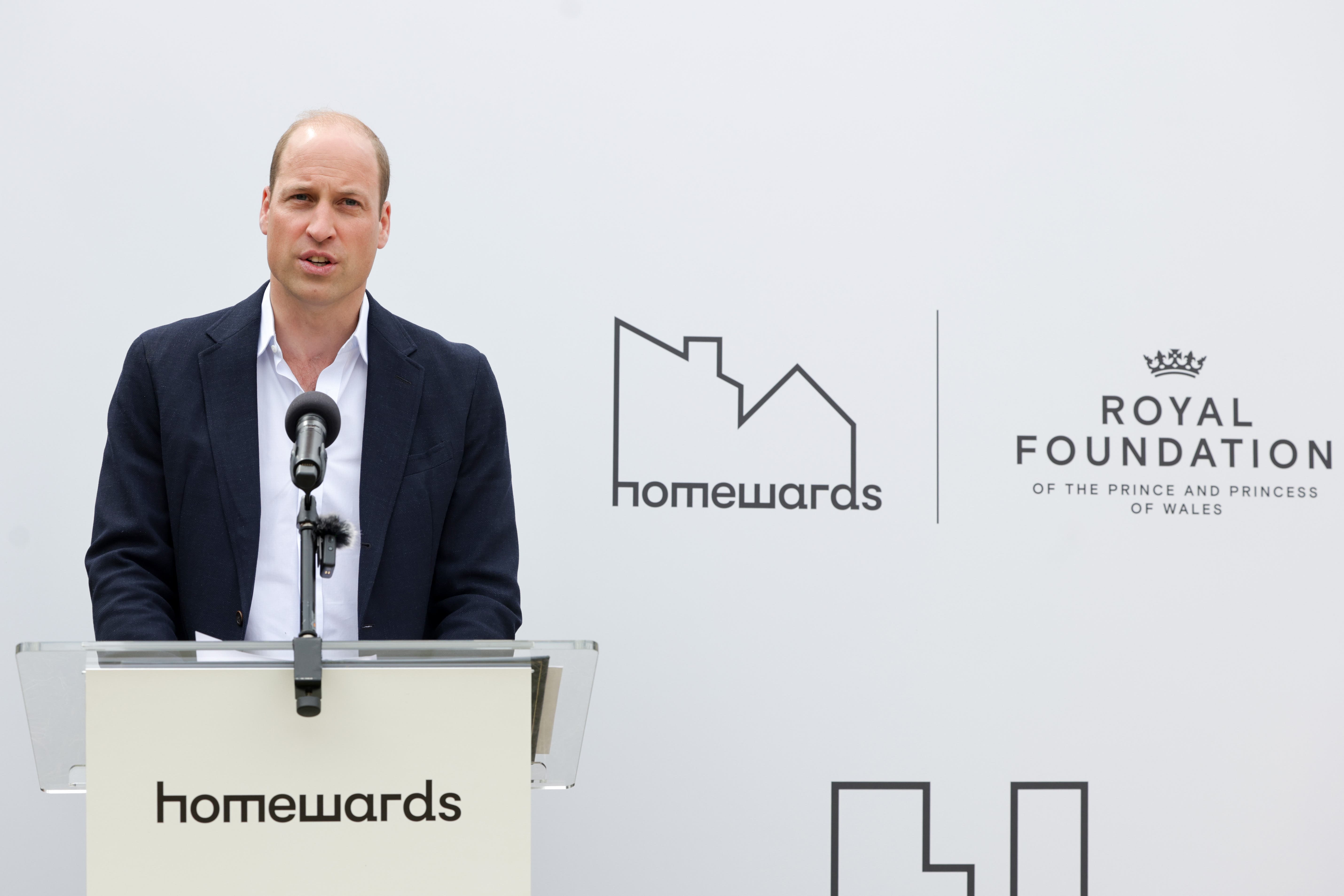Four in 10 do not share William’s optimism on ending homelessness, poll suggests
Homelessness can take various forms, from rough sleeping to families being housed in temporary accommodation.

Your support helps us to tell the story
From reproductive rights to climate change to Big Tech, The Independent is on the ground when the story is developing. Whether it's investigating the financials of Elon Musk's pro-Trump PAC or producing our latest documentary, 'The A Word', which shines a light on the American women fighting for reproductive rights, we know how important it is to parse out the facts from the messaging.
At such a critical moment in US history, we need reporters on the ground. Your donation allows us to keep sending journalists to speak to both sides of the story.
The Independent is trusted by Americans across the entire political spectrum. And unlike many other quality news outlets, we choose not to lock Americans out of our reporting and analysis with paywalls. We believe quality journalism should be available to everyone, paid for by those who can afford it.
Your support makes all the difference.The Prince of Wales’ optimism on ending homelessness is not shared by the public, according to research which suggested many believe it cannot be prevented.
William has previously said that while no single organisation can end homelessness, charities working together with others “can help demonstrate it is not an inevitable part of life”.
A documentary entitled Prince William: We Can End Homelessness aired in October, to mark the first year of his Homewards initiative.
But new polling has suggested that, contrary to the future king’s thoughts, some four in 10 people feel homelessness is inevitable.
Responding to the statement “homelessness will always happen – it is not possible to prevent it, only to manage it”, 44% said they tend to agree or strongly agree.
Just over a quarter (27%) said they tend to disagree or strongly disagree, while the rest said they neither agreed nor disagreed with the statement.
The research, carried out by Ipsos for the Centre for Homelessness Impact, questioned 2,142 adults across the UK in November.
Other findings included that most people (83%) agreehomelessness is a serious problem for the UK and 70% agree society does not pay enough attention to the issue.
More than six in 10 (62%) said they believe homelessness will increase in the UK in the next 12 months.
Homelessness can take various forms, from rough sleeping to families being housed in temporary accommodation.
Data published in November showed an increase in the number of people sleeping rough in London of almost a fifth on the same period last year.
To end homelessness for good we need to build a robust evidence base of what works, so resources can be targeted for the most impact
A total of 4,780 rough sleepers were seen on the capital’s streets between July and September, according to the latest statistics from the Combined Homelessness and Information Network (Chain), which said that was the highest quarterly figure since its records began in 2009.
The latest figure was an increase of 18% from 4,068 people in the same quarter last year and up 13% from 4,223 in the period between April and June this year.
The number of people being housed in temporary accommodation, including bed and breakfasts, has hit record highs in recent years, with Government statistics showing 159,380 children were in temporary accommodation in England between April and June this year.
The latest official figures, published earlier this month by the Ministry of Housing, Communities and Local Government, showed there were 123,100 households in England in temporary accommodation in the three months to the end of June, a rise of 16.3% on the same period the previous year.
Ligia Teixeira, chief executive of the Centre for Homelessness Impact, said: “To end homelessness for good we need to build a robust evidence base of what works, so resources can be targeted for the most impact.
“We also need to switch our focus to prevention and structural solutions, in order to break the cycle of homelessness for good.”
Last week, the Government described funding of almost a billion pounds next year for English councils as marking a “turning point” in efforts to tackle and prevent homelessness.
The investment, from April, includes a more than £190 million rise in a grant aiming to help councils prevent homelessness, while millions will go towards rough sleeping, and £5 million towards emergency accommodation reduction pilots, working with 20 local councils that currently have the highest use of B&Bs for homeless people.